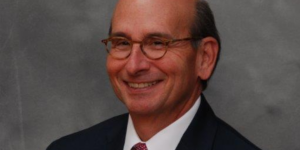Gov. Kay Ivey signs bill to protect patients right to receive visitors
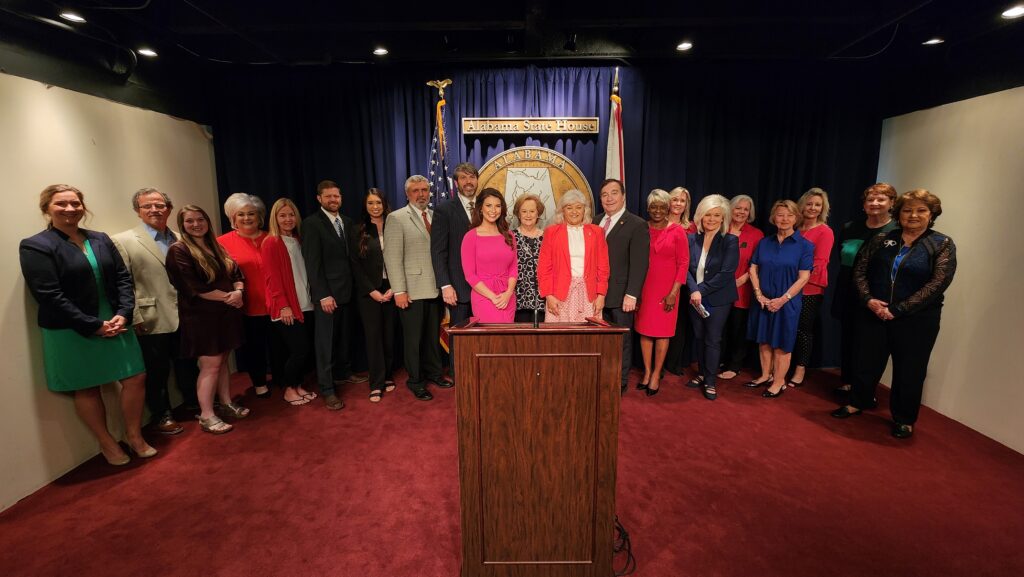
Governor Kay Ivey held a formal bill signing ceremony for legislation on Thursday, strengthening patients’ rights by allowing their family members to be present in a hospital room. Senate Bill 113 (SB113) was sponsored by State Senator Garlan Gudger. It was carried in the House of Representatives by Representative Debbie Wood. “I was also proud to place my signature on SB 113, allowing hospital and nursing home patients the right to visit with loved ones,” Gov. Ivey said on Twitter. “Certainly, allowing visitation is the right thing to do. Once again, I commend the Legislature on passing these good bills.” “I’m thankful that this bill has corrected that wrong and that we have worked together as a team,” Sen. Gudger said. “Everyone on this stage, Senate and House, passed [this bill] almost unanimously through both chambers, and the process at the State Government worked this time. I’m thankful that our heavenly father has given us tools and attributes to use, and those tools in the state government are the process of getting bills passed that are good bills we can all stand behind.” “We heard an outcry from the public of people who wanted to be with their loved one while they were in a hospital, nursing home, or any kind of healthcare facility,” says Rep. Wood. Wood’s mother died from COVID in 2021, and the family was not allowed into the facility. “What haunted me was the fact my mother may have thought that we abandoned her because we were not with her,” Wood said. “When she needed us the most, we were cut off. That’s what this bill is about.” During the COVID-19 global pandemic, the Centers for Disease Control and Prevention advised that hospitals and nursing homes limit visitation to prevent the spread of the coronavirus strain that was causing the illness. Despite those precautions, 21,133 Alabamians died of the illness. Most died alone while their loved ones were forced to remain outside. Thousands of Alabamians who died of things other than COVID also died in isolation in hospitals and nursing homes – in many cases, the first time they had ever been separated from all their friends and family. One of those who perished was Harold Sachs – the longtime chief of staff of the Alabama Republican Party. SB113 was named the Harold Sachs and Anne Roberts Act. State Sen. Dan Roberts lost his beloved wife, Anne, to the pandemic. He and Gudger set about writing SB113 after an earlier 2021 version of the legislation proved to be ineffective. Roberts and his sons were barred from seeing Anne in 2022, much like the Sachs family was barred from visiting Harold during his final weeks on this Earth in 2020. “This has been a team effort,” said Sen. Roberts. “The Sachs family first kicked off this idea, but it was the result of an outcry that we heard all over the state. Then it was our turn, the Roberts family. We said goodbye to my beloved wife of 42 and a half years, and that was it. All of us were denied the opportunity to be with our loved ones in their final days. Thank you for the support we’ve had from all who are on this stage, but also from others across the state.” Emee Baldwin is the granddaughter of the late Harold Sachs and the founder of PoppysPurpose.org, the grassroots organization that energized people around the state to get behind these bills. “I’m so excited that this bill has passed. [During COVID] Our nurses and doctors did great,” Baldwin said. “They did everything that they could, but sometimes you just need that familiar face in the room with you. You need that familiar touch to be there with you. You need someone there to pray with you, to lay hands over you, just to encourage you and have a smiling face. Thank you to everyone who worked so hard to get this bill passed. It’s truly going to change patients’ lives here in Alabama.” Baldwin now serves as a neonatal intensive care nurse in Birmingham. The Harold Sachs and Anne Roberts Act is set to take effect immediately. Tuesday will be day 16 of the 2023 Alabama Regular Legislative Session. To connect with the author of this story or to comment, email brandonmreporter@gmail.com.
Senate Committee rejects effort to move Robert E. Lee holiday to October

On Wednesday, the Senate Fiscal Responsibility and Economic Development (FRED) Committee rejected a bill that would have moved the celebration of the Robert E. Lee holiday to the second Monday in October. The legislation would have moved the Robert E. Lee state holiday from its current position on the calendar – the same day as the Martin Luther King Jr. birthday holiday in January – to the Columbus Day holiday in October. Senate Bill 130 (SB130) was sponsored by State Senator Vivian Figures. “I brought this bipartisan bill two years ago along with the late Representative Steve McMillan,” Figures said. “We and Mississippi are the only two states that celebrate both of these men on the same day.” “We can’t move the Martin Luther King Holiday because it is a federal holiday,” Figures explained. “October was the time of his (Lee’s) death.” Figures said that Lee was indicted for treason by a grand jury, owned slaves, had slaves whipped, broke up slave families, and led an army that enslaved free Black people and killed African American federal troops who tried to surrender. Figures said that advancing her legislation would benefit the state’s image and boost the economy. A public hearing had been called on SB130, but the people asked to come to the Committee and speak against the bill were not present. The Committee voted not to give a favorable report to SB130 by a voice vote. Following the vote, Figures asked for a roll call vote. Chairman Garlan Gudger told Sen. Figures, “No, you may not.” “I want the record to show that the African-American women voted for the bill, and all of the White Republican men and the White Republican woman voted no,” Figures said. “I am disappointed, but I am not surprised,” Figures told reporters after the vote by the Committee. This is the third year the Legislature has refused to advance this legislation. Figures was not optimistic that the bill would pass next year. “I see the writing on the wall,” Figures said. “Somebody or something is putting pressure on them because even members I thought would support it didn’t.” Alabama Today asked why not move the holiday back a week so that King has a weekend and Lee has his own weekend closer to his actual birthday. “The state doesn’t want that – that costs money,” Figures said. “They don’t want another state employee holiday.” Alabama Today asked why not move it to June and celebrate it on the same days as Jefferson Davis’s birthday. “I wanted a day with a connection to Lee,” Figures said. “He died on October 12.” Figures was asked why not just eliminate the celebration of Robert E. Lee Day. “That definitely won’t pass,” Figures said. Lee, the former Commandant at the U.S. Military Academy at West Point and a veteran of the War with Mexico was a Colonel in the U.S. Army who resigned his commission when his native State of Virginia voted to secede from the Union. Lee then accepted a command as a general in the Confederate States of America in 1861. Lee would become a military history legend in command of the CSA’s Army of Northern Virginia. Following the Civil War, he was President of the College now known as Washington and Lee University. Lee has been admired by Americans, particularly Southerners, for over 150 years. Alabama has celebrated the life of the beloved Confederate General with a state holiday for over a hundred years. Martin Luther King was a Montgomery Pastor who was the acknowledged leader of the Montgomery Bus Boycott and the Civil Rights Movement. He led the voting rights march from Selma to Montgomery after the first march was beaten by State Troopers and the Birmingham civil rights protests while preaching non-violence. King is a winner of the Nobel Peace Prize and is noted for his speeches and writings, including “A Letter from a Birmingham Jail” and his “I Have a Dream Speech.” King was assassinated in Memphis in 1968. President Ronald Reagan signed the bill making King’s birthday a national holiday. When King’s birthday became a holiday, the Alabama Legislature moved the already existing Robert E. Lee holiday to the same day as the King holiday. Wednesday was the 12th legislative day of the 2023 Alabama Regular Legislative Session. To connect with the author of this story or to comment, email brandonmreporter@gmail.com.
Governor Kay Ivey signs legislation to give patients the right to receive visitors

On Tuesday, Alabama Governor Kay Ivey signed legislation into law that protects the rights of hospital and nursing home patients to receive visitors. “The ability to visit a cherished loved one, whether in a hospital or nursing home, should be a fundamental right,” Ivey stated. However, all over the country, during the pandemic, many family members, caregivers, and even clergy were denied access to visit and provide emotional support to patients in healthcare facilities. Such restrictions defy the norms of a caring society, and I was pleased to sign this legislation to signal that in Alabama, we support our patients having this fundamental right.” Senate Bill 113 (SB113) is sponsored by State Sen. Garlan Gudger. It was carried in the House by Rep. Debbie Wood. Senate Bill 113 requires healthcare facilities to adopt specific visitation policies. The bill provides that patients have a right to visitation and can designate an essential caregiver. It also guarantees that the caregiver has visitation rights. “I supported that bill,” said Speaker of the House Nathaniel Ledbetter. “It is only fair.” Thousands of Alabamians have died without their loved ones present since COVID restrictions began in 2020. “I would hate to know that I couldn’t visit my loved one,” Ledbetter said. Rep. Wood explained that patients could change their caregivers while in the hospital. For example, one adult child could be the designated caregiver on one day and their sibling on the next. Wood also said the bill prohibits a healthcare facility from requiring visitors to show proof of vaccination. They are also prohibited from banning consensual physical contact between visitors and patients. The Alabama Department of Public Health (ADPH) will be tasked with requiring healthcare facilities to provide visitation policies to the Department of Public Health. That visitation policy cannot be more restrictive than the policy that the hospital has for its staff. ADPH will develop a mechanism for complaints to be lodged and will have a page on its website that explains the visitation rights law. SB113 also provides for certain immunity from liability. A doctor may, in certain circumstances, exempt a psychiatric care facility from the visitation requirement. The bill is named after Harold Sachs – the longtime Chief of Staff of the Alabama Republican Party. Sachs was diagnosed with COVID-19 and pneumonia in late 2020. His condition deteriorated quickly, and after a few weeks, he passed away. Sachs’ family – like many Alabama families- were not allowed to visit Harold in the COVID-19 ward. The Sachs family for their efforts in getting the bill passed. The bill also was amended to include the name Ann Roberts in the title. Ann Roberts was the wife of State Sen. Dan Roberts. She lost a long battle with COVID-19 in 2021. SB113 passed the Alabama House of Representatives 100 to 1. SB113 has already passed the Senate on a 33 to 0 vote. Wednesday will be the 12th legislative day of the 2023 Alabama Regular Legislative Session. The Alabama Constitution limits the legislature to no more than thirty legislative days in a regular session. To connect with the author of this story or to comment, email brandonmreporter@gmail.com.
Alabama legislature advances Governor’s “Gameplan” economic incentives package

On Thursday, both the Alabama House of Representatives and the Senate voted in favor of portions of Alabama Governor Kay Ivey’s “Game Plan” legislative package. “The Game Plan will position Alabama for a new era of vigorous growth, allowing us to continue our record-breaking economic development success while providing new levels of support for the state’s innovation economy,” said Gov. Ivey. “This package will benefit all Alabamians, those living in both urban centers and rural areas, and ensure our citizens are ready for high-paying careers.” “The Game Plan — our plan for Alabama’s continued economic success — had great momentum today in the Alabama Legislature,” Ivey wrote on Twitter. “I commend both the Senate and House for their work on this package of bills and look forward to their final passage. Let’s keep Alabama winning!” The House passed four-game plan bills on Thursday, while the Senate passed two more. The legislation from each now has to be considered by the second House. House Bill 257 (HB257) is sponsored by State Rep. Danny Garrett. HB257 creates the Alabama Site Development Fund. This legislation authorizes the State Industrial Development Authority to make site assessment grants and site development grants to private companies. The bill also provides for the criteria that must be met for grant approval, including changes to criteria based on economic conditions. It limits the funding that may be received by any site under the grant program. HB257 passed the House 105 to 0. HB257 has been referred to the Senate Fiscal Responsibility and Economic Development Committee, which is chaired by Sen. Garlan Gudger. Senate Bill 165 is sponsored by State Sen. Arthur Orr. It also addresses the creation of the Alabama Site Development Fund. SB165 appears to be the Senate version of HB257. SB165 passed the Senate by a vote of 30 to 0. The legislation has been referred to the House Ways and Means Education Committee – which Garrett chairs. House Bill 241 (HB241) is also sponsored by Garrett. HB241 extends the Alabama Jobs Act sunset date to July 31, 2028. It also increases the annualized cap on outstanding Alabama Jobs Act incentives by $25 million yearly for five up to $475 million. The bill increases the investment tax credit transfer time to provide that the first five years of the investment credit may be transferred by the incentivized company and applied by another person or company under the Alabama Jobs Act. It also extends the Growing Alabama Act sunset date to July 31, 2028, while increasing the annual cap on funding approved pursuant to the Growing Alabama Act incrementally to $35 million. The legislation transfers certain programs from the Growing Alabama Act to Innovate Alabama and creates the Sweet Home Alabama Tourism Investment Act. The Alabama Tourism Department is tasked with developing standards for the review and approval of certified tourism destination projects. HB247 passed the House 105 to 0. It has been referred to the Senate Finance and Taxation Education Committee, which Sen. Orr chairs. Senate Bill 151 (SB151) is sponsored by Sen. Garlan Gudger. SB151 would amend existing law on economic development to authorize the Joint Legislative Advisory Committee on Economic Development to conduct an economic incentive evaluation. It would also require the Department of Commerce to publish certain information regarding economic development incentives awarded under the Alabama Jobs Act. SB151 Passed the Senate 30 to 0. The legislation has been referred to the House Ways and Means Education Committee. House Bill 247 is sponsored by House Minority Leader Anthony Daniels. Under existing law, the Alabama Innovation Corporation is a public corporation created to support, financially and otherwise, growth in technology, innovation, and entrepreneurship sectors in the state. HB247 would change that to Innovate Alabama. Under existing law, the Alabama Innovation Corporation is also authorized to make Small Business Innovation Research and Small Business Technology Transfer Research matching grants to certain entities. To receive a grant, the entity must make its primary place of business in Alabama. The location of residency of one top executive must be in Alabama, and 75 percent of its employees must reside in Alabama for five years. This bill would add a one-year time frame for making Alabama the principal place of business, requiring the majority of top executives to reside in Alabama and a majority of employees to live in Alabama as a condition for receiving a grant. This bill would create the Innovating Alabama tax credit program to allow certain economic development organizations that create, operate, or support certain programs relating to technology accelerators and underrepresented companies to claim specified tax credits. This bill would also exempt working groups, task forces, and subcommittees of the Alabama Innovation Corporation from the Alabama Open Meetings Act. HB247 passed the Alabama House of Representatives 105 to 0. The bill has been referred to the Senate Finance and Taxation Education Committee. House Bill 240 is sponsored by State Rep. Cynthia Almond. HB240 requires the Alabama Department of Commerce to publish on its website certain information about economic development incentives awarded under the Alabama Jobs Act. It provides transparency to the awarding of incentives. HB240 passed the Alabama House of Representatives 105 to 0. It has been referred to the Senate Fiscal Responsibility and Economic Development Committee. Following passage of the six bills in their respective Houses of origin, Speaker of the House Nathaniel Ledbetter posted on Twitter. “The state’s economy is stronger than at any other time in our history, and we have an abundance of long-lasting, good-paying jobs,” Ledbetter said. “But while our state has already achieved remarkable milestones, Alabama is on the cusp of transforming its economy for generations.” “Growing Alabama’s economy through increased incentives and industry expansion is imperative to keeping our state the best place to live and work for its citizens,” Ledbetter added. “The Legislature is working for you, and we look forward to building on our progress.” As of Thursday, 542 bills have been filed in the 2023 Alabama Regular Legislative Session. Tuesday will be day 11 of the regular session. The Alabama Constitution limits the Legislature to no more
Legislature passes bill guaranteeing the rights of patients to receive visitors

On Thursday, the Alabama House of Representatives voted in favor of legislation that would guarantee that family members may spend time with their sick and dying loved ones in an Alabama hospital or nursing home. The legislation has already passed the Senate, so it now is in the Governor’s office awaiting her signature. Senate Bill 113 (SB113) is sponsored by State Sen. Garlan Gudger. It is being carried in the House by Rep. Debbie Wood. SB113 requires healthcare facilities to adopt certain visitation policies. Specifically, it provides that patients have a right to visitation. Patients are allowed to designate an essential caregiver, and this bill guarantees that that caregiver has visitation rights. Rep. Wood explained that a patient could change their caregiver while in the hospital. For example, one adult child could be the designated caregiver on one day and their sibling on the next. Wood also said that the bill prohibits a healthcare facility from requiring visitors to show proof of vaccination. They also are prohibited from banning consensual physical contact between visitors and patients. Wood explained that the Alabama Department of Public Health (ADPH) will be tasked with requiring healthcare facilities to provide visitation policies to the Department and of Public Health. That visitation policy cannot be more restrictive than the policy that the hospital has for its staff. ADPH will develop a mechanism for complaints to be lodged and will have a page on its website that explains the visitation rights law. SB113 also provides for certain immunity from liability. Woods said that a doctor may, in certain circumstances, exempt a psychiatric care facility from the visitation requirement. The legislature passed a bill last year establishing patients’ visitation rights, but that bill was virtually unenforceable. “Last year, we passed House Bill 521,” Wood said in Committee. “The problem was we still had family members who were not able to get into see their loved ones.” This bill would allow a health care facility to suspend in-person visitation of a specific visitor if a visitor violates the facility’s policies and procedures.” The impetus for this bill resulted from highly restrictive (in many cases – complete and total bans on visitations) during the COVID-19 global pandemic. The bill is named after Harold Sachs – the longtime Chief of Staff of the Alabama Republican Party. Sachs was diagnosed with COVID-19 and pneumonia in late 2020. His condition deteriorated quickly, and after a few weeks, he passed away. Sachs’ family – like many Alabama families- were not allowed to visit Harold in the COVID-19 ward. Woods credited the Sachs family for their efforts in getting the bill passed. The bill also was amended to include the name Ann Roberts in the title. Ann Roberts was the wife of State Sen. Dan Roberts. She lost a long battle with COVID-19 in 2021. State Rep. Mary Moore felt that the bill went too far in limiting a hospital’s ability to pass rules to prevent the spread of disease. SB113 passed the Alabama House of Representatives 100 to 1. SB113 has already passed the Senate on a 33 to 0 vote. It now goes to Governor Kay Ivey for her consideration. Ivey could sign the bill into law, or she could veto it and send it back to the Legislature with a recommendation for changes. It takes a simple majority of each house of the legislature to override a governor’s veto in Alabama. Tuesday will be the eighth legislative day of the 2023 Alabama Regular Legislative Session. The Alabama Constitution limits the legislature to no more than thirty legislative days in a regular session. To connect with the author of this story or to comment, email brandonmreporter@gmail.com
House Committee advances legislation guaranteeing that patients can have visitors

On Wednesday, the Alabama House Healthcare Committee voted to advance legislation that would guarantee that family members may spend time with their sick and dying loved ones in an Alabama hospital or nursing home. Senate Bill 113 (SB113) is sponsored by State Sen. Garlan Gudger. It is being carried in the House by Rep. Debbie Wood. The bill replaces last year’s patient visitation law. “Last year, we passed House Bill 521,” Wood said. “The problem was we still had family members who were not able to get into see their loved ones.” “Sen. Gudger worked hard to come up with another one with teeth in it,” Wood explained. The synopsis states, “Under existing law, a health care facility must follow certain requirements related to visitation for patients, clients, or residents. This bill would repeal existing law related to healthcare facility visitation and would require healthcare facilities to adopt visitation policies and procedures that meet certain standards. This bill would provide that residents, clients, or patients of a health care facility have the right to visit with any individual of their choosing during the facility’s visiting hours.” “This bill would allow a resident, client, or patient to designate an essential caregiver and would require healthcare facilities to allow essential caregivers at least two hours of daily visitation. This bill would require that any safety-related policies or procedures may not be more stringent than those established for the health care facility’s staff. This bill would prohibit a healthcare facility from requiring visitors to submit proof of vaccination or from prohibiting consensual physical contact between a visitor and a resident, client, or patient. This bill would allow a health care facility to suspend in-person visitation of a specific visitor if a visitor violates the facility’s policies and procedures.” Our healthcare facilities are the greatest asset we have,” Wood said. The bill also defines “end of life.” “End of life means something totally different to different people,” Wood explained. “I would think end of life would mean the last few weeks of life, but to a healthcare facility, end of life might mean the last fifty minutes.” Wood explained that the substitute bill carves out an exception for psychiatric care facilities from the visitation requirements if a doctor signs that the patient cannot receive visitors. During the COVID-19 global pandemic, hospitals and nursing homes banned visitors to try to halt the spread of the SARS-CoV-2 virus. Those measures largely failed, as did vaccine requirements once the vaccine was commercially accessible. Thousands of Alabamians died, many of them believing their family had abandoned them because of the strict limits against visiting the sick and seniors in nursing homes. “We also learn when we go through something traumatic,” Wood said. State Rep. Arnold Mooney said, “Thank you both for your work on this.” “We are a state that respects the dignity of life,” Mooney continued. Rep. Pebblin Warren asked, “Was there any conversation or dialogue with the institutions? The Hospital Association and the Nursing Home Association.” “This bill is a joint effort of everyone to make sure that we have policies and procedures that we The bill is named after Harold Sachs – the longtime Chief of Staff of the Alabama Republican Party. Sachs was diagnosed with COVID-19 and pneumonia in late 2020. His condition deteriorated quickly, and after a few weeks, he passed away. Sachs’ family – like many Alabama families- were not allowed to visit Harold in the COVID-19 ward. “They have been instrumental in pushing this issue,” Wood said. Rep. Paul Lee. is the Chairman of the Healthcare Committee Rep. Mooney made a motion to give the bill a favorable report. The favorable report motion passed unanimously. SB113 has already passed the Senate on a 33 to 0 vote. It could be taken up by the full House of Representatives as early as Thursday. Wednesday is the sixth legislative day of the 2023 Alabama Regular Legislative Session. To connect with the author of this story or to comment, email brandonmreporter@gmail.com.
Lawmakers advance hospital visitation protections

Alabama lawmakers on Thursday advanced legislation requiring hospitals and nursing homes to allow in-person visits, even during a pandemic. The Alabama Senate approved the bill on a 33-0 vote after members shared stories of people being separated from loved ones during the COVID-19 pandemic. The bill now moves to the Alabama House of Representatives. Lawmakers in several other states have also moved to limit restrictions on visitations such as those imposed during the pandemic. The bill’s sponsor Sen. Garlan Gudger said he introduced the bill after constituent Bonnie Sachs approached him at her husband’s funeral and described how she was unable to see her husband of 50 years before he died because of visitation restrictions. Lawmakers approved a bill two years ago, but Gudger said that did not go as far as they wanted. Under the Senate-passed bill, patients would designate an essential caregiver who would be allowed two hours of daily visitation. It would also require facilities to allow visitation for end-of-life situations, childbirth, pediatric patients, and when patients need additional support for things like making major decisions or help with eating and drinking. The legislation additionally says a facility’s visitation policies cannot be more stringent than the safety rules applied to the facility’s staff and may not require proof of any vaccination or immunization. Republished with the permission of The Associated Press.
The ARPA Special Session begins
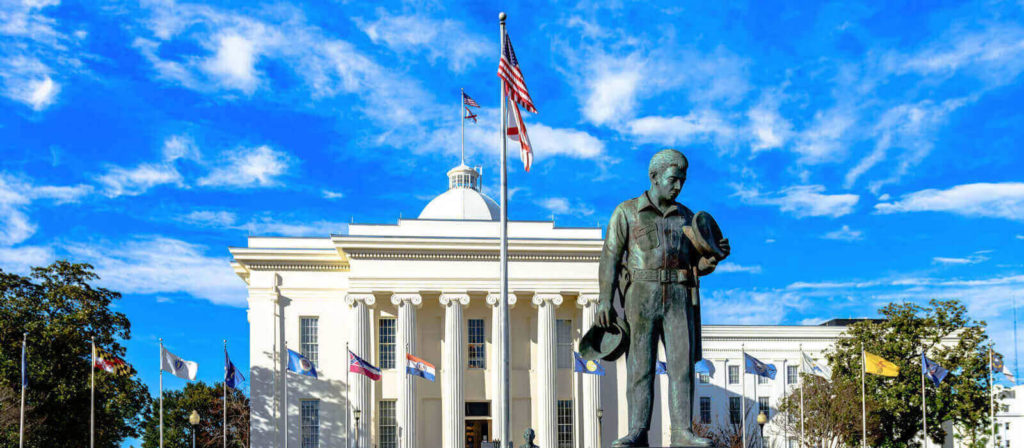
The Alabama Legislature met on Wednesday for the first day of the First 2023 Special Session. The session was called by Alabama Governor Kay Ivey to appropriate just over one billion dollars in American Rescue Plan Act (ARPA) funds that the state received and has not yet appropriated. The Alabama House of Representatives met at 1:00 p.m. to conduct business and allow for the introduction of bills in the special session. The pre-filed bills we have been discussing for weeks are for the 2023 Regular Legislative Session and cannot be addressed during the special session. The regular session will resume on Thursday, March 21. House Speaker Pro Tem Chris Pringle introduced, and the House passed, a resolution to formally announce to the Senate that the House is in special session. The House passed a resolution to appoint a committee to announce to the governor that the House is in a special session. The Alabama Senate gaveled in just after the House adjourned. The Senate appointed a committee to announce to the Governor that the Senate is in special session. They also passed a resolution to announce to the House of Representatives that the Senate is in session. Many of these rules and procedures may sound redundant, but in 1901 when the Alabama Constitution was written, no one had cell phones, the internet had not been invented, and most people in the state still did not have telephones or electricity. These rules exist so that a legislative body is not meeting in secret without informing the other legislative body or the governor of its activity. State Sen. Greg Albritton addressed the body about the proposed bill to pay off the money that the state owes the Alabama Trust Fund. “A few years back, the Legislature ran into a problem, and there was a significant shortfall in funds,” for the state general fund (SGF) Albritton explained to the Senators. “We had to go to the people to seek authority to borrow money from the Alabama Trust Fund.” “We borrowed over $400 million to keep the government operational,” Albritton said. “We stated that we had a moral obligation to pay that money back.” “At the time, there was a lot of skepticism that we would never pay that money back,” Albritton said. “We have been paying $13 million a year out of the general fund. When times got better we began making double payments.” “The bill that I am introducing this afternoon, SB1, will pay that completely and totally off,” Albritton continued. “This bill will take $59,987 thousand and some change to pay that ATF off. When this was done that balance was approximately $2 billion and change. Today that amount is over $4 billion.” Senate Bill 1 has been referred to the Senate Finance and Taxation General Fund Committee chaired by Albritton. Senate Bill 2 by Sen. Garlan Gudger, dealing with Healthcare, has been referred to the Senate Committee on Healthcare. Both committees will meet on Thursday to consider these two pieces of legislation. Senate Pro Tem Greg Reed announced that the Senate will reconvene for Day 2 of the 2024 First Special Session on Thursday at 9:30 a.m. A joint session of the House and Senate will meet in the historic 1859 Alabama Capitol Building at 10:00 a.m. on Thursday to honor former U.S. Senator Richard Shelby for his decades of service to the state of Alabama. The House will then return to the Statehouse for its own session at 11:30 a.m. To connect with the author of this story or to comment, email brandonmreporter@gmail.com.
The 2023 Alabama Legislative Session has begun
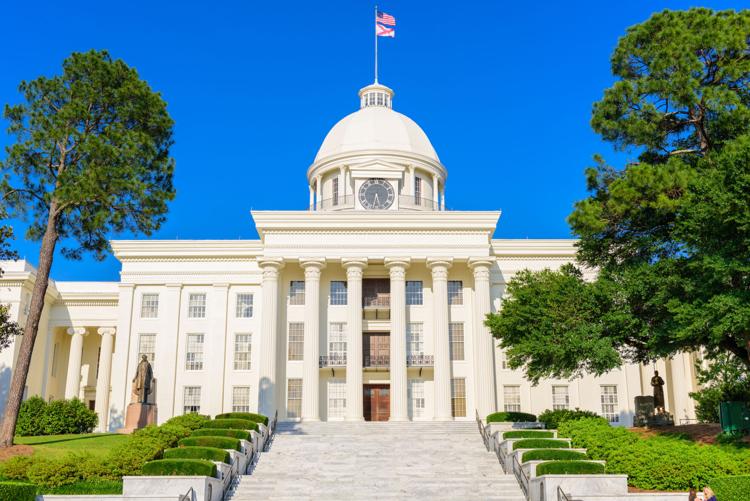
Tuesday, the Alabama State Legislature returned to Montgomery for the start of the 2024 Alabama Regular Legislative Session. The Alabama House of Representatives and the Alabama Senate gaveled in at noon for the first legislative day and then joined the governor that night for a joint session where she presented her state of the state address. Senate Pro Tem. Greg Reed told members of the Senate, “I appreciate you being willing to serve the people of Alabama.” “The sacrifices made by the family of those who serve is not insignificant,” Reed added, thanking the families of the 35 Senators for their sacrifices. The Senate opened the journal to introduce bills, selected a committee to inform the governor that the Senate was now in session, and passed a resolution in honor of March being Women’s History Month. The resolution “celebrates the contribution that Alabama women have made to American history.” The resolution honors a number of Alabama women, including Rosa Parks, Helen Keller, and Condoleezza Rice, for their contributions to the state as well as the governor. “Current governor Kay Ivey is the longest serving woman governor in history and the second after Lurleen Wallace.” State Sen. Rodger Smitherman said, “This resolution inspired me. That resolution is a cosmic picture of the state of Alabama. It does not matter whether you are Black or White. It was a cosmic picture of all the people of Alabama.” “That’s our state,” Smitherman said. “All of us, we represent the state. Look around this room. This is what our state looks like. I am looking forward to voting for this resolution with a smile on my face.” Senate Joint Resolution 4 passed unanimously. Senate Joint Resolution 5 honoring former U.S. Senator Richard Shelby for his decades of service to the state passed. State Sen. Gerald Allen sponsored this. A second resolution supporting the oil and gas exploration by Allen was held over and referred to the Rules Committee after State Sen. Bobby Singleton asked for more time to study it. Reed announced that the Senate needed to address statutory requirements at the start of the session. The Senate held a Legislative Council election and selected Sens. Clyde Chambliss, Steve Livingston, and Vivian Figures to represent the Senate on the Council. For the Committee on Public Accounts, the Senate elected Sens. Arthur Orr, Clay Scofield, and Jabo Waggoner. On the Sunset Committee, Sens. Garlan Gudger, Keith Kelley, and Figures were elected. Sens. Orr, Scofield, Waggoner, Figures, and Singleton were elected to the Senate Ethics and Conduct Committee. Ivey called a special session beginning on Wednesday for the Legislature to focus on appropriating over one billion dollars in American Rescue Plan Act funds that the federal government sent to the state of Alabama. “This evening, I am calling a Special Session of the Alabama Legislature to begin tomorrow so that we can urgently address these endeavors,” Ivey said. “We are, once again, tasked with allocating our taxpayers’ dollars that are part of the second round of the American Rescue Plan Act from Congress.” “This is not free money,” Ivey warned legislators. “And we must invest these one-time funds wisely. Last year, thanks to you, members of the Alabama Legislature, we put these dollars to work, meeting some of Alabama’s biggest challenges. I commit to the people of Alabama we will once again take a smart approach and put it towards major and needed endeavors like expanding broadband access, improving our water and sewer infrastructure, and investing in our health care – including telemedicine.” Tuesday was the first day of the 2023 Alabama Regular Legislative Session, but since Ivey has called a special session, the second legislative day of the regular session will not begin until Tuesday, March 21. The Alabama Constitution of 1901 limits the Legislature to just thirty legislative days in a regular session. Members worked on Tuesday, introducing their bills for the regular session. At the close of the day on Monday, 98 bills had been pre-filed ahead of the session. By the end of the day on Tuesday, that had grown to 174 bills. Reed explained to reporters that it takes a minimum of five legislative days for a bill to pass both Houses of the Legislature, so it will take the rest of this legislative week and next week for the ARPA appropriations bill to pass and go to Gov. Ivey for her signature. Once that is done, the special session can end, and the Legislature will be poised to remove the 2023 Alabama Regular Legislative Session. To connect with the author of this story or to comment, email brandonmreporter@gmail.com.
Seven State Senate seat races to watch
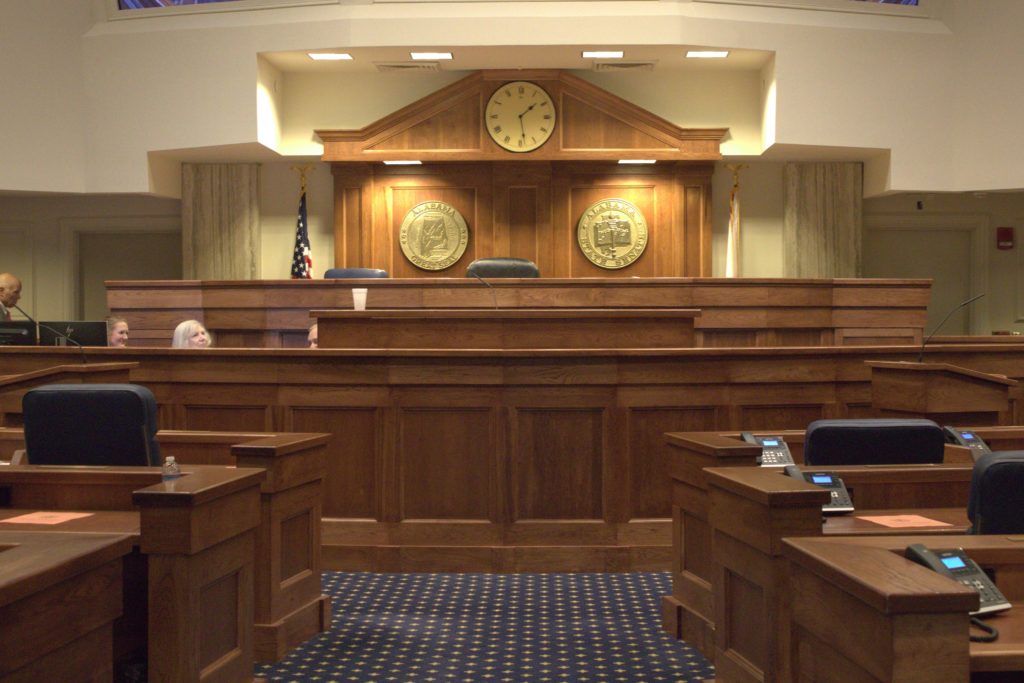
All 35 State Senate seats are up for grabs in the November 8 general election. Republicans hold a 27 to 8 margin over Democrats in the current makeup of the Alabama Senate. The Alabama Republican Party is running candidates in 29 seats. The GOP is defending all of the 27 seats they currently hold and are running candidates in two districts currently held by Democrats. Alabama Democrats are defending the eight seats they currently hold and are challenging the GOP in six districts currently held by Republicans. Libertarians currently hold no seats in the Alabama Senate but are running twelve candidates in State Senate races. There are a number of contested State Senate races on the November ballot. These are the seven races with the most chance of becoming interesting. Democrat Lisa Ward is challenging Republican incumbent State Sen. Gerald Allen in Senate District 21. Both of these candidates are well known in the Tuscaloosa area. Allen has represented the district for three terms and served in the Alabama House of Representatives before that. Ward is a former city councilwoman who is very active in the community. According to filings with the Alabama Secretary of State’s office, Allen has a $204,872.68 campaign account balance entering September, which includes August contributions of $8,250. Ward, the challenger, meanwhile raised $23,149.76 in August and has a cash balance of $31,968.94 entering September. Neither faced a primary opponent. Democrat Kim Lewis versus Republican incumbent State Sen. Tom Butler in Senate District 2. Butler has represented Madison County in the legislature for parts of five decades, but this is one of the fastest growing areas in the state, and there are thousands of new people that bring different politics with them to the area. Lewis is hoping that an increasingly purple Madison County will result in a win. Butler was pushed hard in the Republican primary by former State Sen. Bill Holtzclaw. Butler raised $44,500 in the month of August and enters September with $38,166.63. Lewis raised $7,830 in August and comes into September with $27,859.70. In Senate District 33, incumbent Democratic Sen. Vivian Figures faces Republican challenger Pete Riehm. This has been a very safe Democratic district consisting of the poorest parts of Mobile as well as Mobile County suburbs like Prichard, but redistricting meant that the new district now goes deep into Baldwin County and picked up the very prosperous and heavily Republican community of Spanish Fort. This district went from very blue to purple thanks to the legislature’s redistricting and efforts to “unpack” Black voters from majority-minority districts. Is it purple enough for a Republican to take it away from the Democrats? That is for the voters to decide on November 8. Sen. Figures raised $31,500 in the month of August to enter September with $110,497.02. Riehm had contributions of $19,577.54 in August and enters September with $60,911.31. Democrat Sherri Lewis versus Republican Jay Hovey in Senate District 27. Hovey, an Auburn City Councilman, just narrowly defeated incumbent Tom Whatley (R-Auburn) in a heavily contested GOP primary. Hovey, who has the challenge of unifying Republicans, raised $85,500 in contributions in August to enter September with a cash balance of $70,074.17. Reese meanwhile raised $1,806.20 in August to bring a total of $2,703.33 into the month of September. Senate District 23 – here, there are three candidates vying for the open seat formerly held by State Sen. Malika Sanders-Fortier, who vacated the seat in an unsuccessful bid for governor. Democrat Robert Lee Stewart narrowly defeated former State Sen. Hank Sanders in a hard-fought Democratic primary runoff in June. Stewart faces both a Republican in Michael Nimmer and a Libertarian in Portia Stephens. Stewart raised $16,987 in August to bring $17,872.84 into September. The Libertarian, Stephens, reported raising $2,060 in August to finish the month with $6,285 in cash on hand. The Republican, Nimmer, has not filed a campaign finance report. Alabama does not have general election runoffs, so when there are multiple candidates, the candidate with the most votes wins even if they got less than half of the votes. There is another three-way contest in Senate District 29. There, incumbent Republican Sen. Donnie Chesteen (R-Dothan) faces both Democrat Nathan “Nate” Mathis and Libertarian Floyd “Pete” McBroom. Matthis reported raising no money in August, but he has $5,719.36 in cash on hand. McBroom has not filed a campaign finance report with the Secretary of State’s office yet. The incumbent, Chesteen, raised $25,500 in August to enter September with $327,660.86. In Senate District 12, Republican Keith Kelley is battling Democrat David McCullars for the open seat currently held by Sen. Del Marsh. Kelley raised $29,658.24 in August and has $65,102.13 in cash on hand. McCullars only raised $265 in the month of August and entered the month of September with $4,377.15 in cash on hand. Kelley had a hard-fought Republican primary. This is a district that has given Marsh a close call in the 2014 general election. In other contested Alabama Senate races · SD3 incumbent Arthur Orr (R-Decatur) faces Libertarian Rick Chandler · SD4 incumbent Garlan Gudger (R-Cullman) faces Libertarian Jacob Marlow · SD6 incumbent Larry Stutts (R-Sheffield) faces Libertarian Kyle Richard-Garrison · SD7 incumbent Sam Givhan (R-Huntsville) faces Democrat Korey Wilson · SD15 incumbent Dan Roberts (R-Mountain Brook) faces Libertarian Michael Crump · SD17 incumbent Shay Shelnutt (R-Trussville) faces Libertarian John Fortenberry · SD24 incumbent Bobby Singleton (D-Greensboro) faces Libertarian Richard Benderson · SD25 incumbent Will Barfoot (R-Montgomery) versus Libertarian Louie Woolbright · SD28 incumbent Billy Beasley (D-Clayton) faces Libertarian David Boatwright · SD35 incumbent David Sessions (R-Grand Bay) faces Libertarian Clifton Hudson Republican incumbents Tim Melson, Greg Reed, Steve Livingston, Clay Scofield, Andrew Jones, Randy Price, April Weaver, Jabo Waggoner, Greg Albritton, Clyde Chambliss, Chris Elliott, and Jack Williams are all running unopposed. Republican newcomers Lance Bell in SD11 and Josh Carnley in SD31 are also unopposed in the general election. Democratic incumbents Rodger Smitherman, Linda Coleman-Madison, and Kirk Hatcher are all also unopposed in the general election. State Rep. Merika Coleman is unopposed in SD19, which is being vacated by the retirement of Priscilla Dunn (D-Bessemer). In 2022 Republican candidates in Alabama have received $44,321,108.97 in contributions. Political Action Committees have received $17,846,761.05. Democratic candidates have received $6,629,199.43, and all other candidates have received just $111,950.87. The general
Steve Flowers: Incumbency reigns supreme in State Senate

Being an incumbent state senator in Alabama is like owning that seat. The level of re-electability odds is probably better than that of an incumbent congressman, which is about the same as being elected to a seat in the Russian Communist Politburo. Being a freshman state senator in Alabama is a more powerful position than being a freshman U.S. congressman, especially if you want to affect public policy. Many times, a 50-year old, successful person who is interested in seeking a representative role will approach me and seek my advice about running for either a state senate seat or an open congressional seat. I will quickly advise them that as a state senator, you are one of 35, and you immediately have an impact on your first year as a state senator. However, if you win a congressional seat, you are one of 435. Because of the seniority system, it will be 15 years before they know your name in Washington and 25 years before you are chairman of a committee, and then it is time to retire. In the 35-member Alabama Senate, there are 27 Republicans and 8 Democrats – a pretty supermajority for the GOP. Twenty-four of the twenty-seven senate Republicans are running for reelection. Republicans Jimmy Holley, Del Marsh, and Jim McClendon are retiring. These seats will be filled by another Republican. Therefore, when the Senate organizes next January, the 27 to 8 supermajority will remain the same. The lines are drawn to protect incumbents on both sides of the aisle. The Constitution provides the power of the pencil for legislators to draw their own legislative districts. Seventeen of the 24 Republican incumbents have no opposition in the Republican Primary. Of the seven Republican senators who drew a Republican opponent, they only got an opponent the last day of qualifying, and their opposition is token at best. All 24 Republican incumbents will be reelected. If my prognostication is correct, that is a 100% re-electability rate. There are only two GOP incumbents that were first thought to have viable opponents. Tom Whatley, at first blush, was rumored to have a race. However, polling and fundraising reveal he will win easily. The only interesting race may be in the Huntsville area, where incumbent Tom Butler is being challenged by Bill Holtzclaw, who previously served in that senate seat. The rule of incumbency also prevails on the Democratic side of the aisle. There is only one Democratic seat open. Priscilla Dunn holds the post in name only. She has never attended a senate day in Montgomery for this entire quadrennium. The Senate has, in essence, been operating with 34 senators. In actuality, the Democrats have only seven senate seats. There are 150,000 residents of Jefferson County who have had no voice or vote in the Alabama Senate for four years. There are two Democratic House members vying to fill this seat, Merrika Coleman and Louise Alexander. Ms. Coleman is favored to win this open Senate seat. The cadre of leadership on the Democratic side will return, including powers Bobby Singleton, Rodger Smitherman, and Vivian Figures. Hank Sanders will return to represent Selma and the Black Belt after a four-year sabbatical. His daughter was in the seat this last quadrennium. The entire leadership of the Republican-led Senate will return unopposed, including Greg Reed, Jabo Waggoner, Clay Scofield, Arthur Orr, Greg Albritton, Steve Livingston, Gerald Allen, and especially Clyde Chambliss. They will be joined by a superstar freshman class, who will become even more powerful. This class of leaders includes Will Barfoot, Garlan Gudger, April Weaver, Sam Givhan, Donnie Chesteen, and a trio contingency of Baldwin/Mobile senators Chris Elliott, Jack Williams, and David Sessions. Another member of this sterling class, Dan Roberts of Jefferson, has an opponent but will be reelected. The three open Republican seats and one Democratic open seat will give us some interesting senate races to follow. One of, if not the most important ingredients which creates the power of incumbency is the almighty campaign dollar. Money is the mother’s milk of politics. Most of this campaign money comes from Special Interest Political Action Committees. Ninety percent of those special interest dollars go to incumbents. Thus, over 90% of Alabama state senators are reelected. See you next week. Steve Flowers is Alabama’s leading political columnist. His weekly column appears in over 60 Alabama newspapers. He served 16 years in the state legislature. Steve may be reached at: www.steveflowers.us.
Steve Flowers: State Senate will have little turnover in 2022

2022 was anticipated to be an exciting competitive election year. However, it is going to be a yawn of a political year. If you thought there was no competition for the constitutional offices and the House of Representatives seats in next year’s elections, then you have not seen anything like the lack of turnover in the Alabama State Senate. Incumbency will prevail. In fact, the power of incumbency in the Alabama State Senate is on par with the incumbent return percentage for Congress, which is probably comparable to the Russian Communist Politburo. There are 35 state Senate seats; 27 of the 35 are held by Republicans. Out of the 27 Republican state senators, 24 are running for reelection, and all 24 probably will be reelected. Almost all of them have no opposition. The Democratic minority has just as high a reelection bar. Of the eight Democrats, seven probably will be running unopposed. The only Democrat not running will be Priscilla Dunn, who has not been to the Senate this entire four-year term. Most of the first-term State Senators have never met her. According to rumors, she is in poor health and cannot attend. The 150,000 people in Senate District 19 in Jefferson County have been without a voice or vote in the Alabama Senate for four years. The three retiring Republican State Senators are giants. Del Marsh, Jimmy Holley, and Jim McClendon’s shoes will be hard to fill. These three seats will be filled by new Republicans. The 27-8 super Republican majority will continue. State Senator Del Marsh (R-Anniston) has been a leader in the Senate for 23 years. He served as President Pro Tempore of the Senate most of that time. He ran a very effective ship of state. State Senator Jimmy Holley (R-Elba/Coffee) is an icon. He was a master of Senate rules. He also was a mentor to a good many young senators. State Senator Jim McClendon (R-St. Clair) will be sorely missed in the state senate. The gentleman from St. Clair served with honor and distinction for eight years in the State Senate and 12 years before that in the House of Representatives. This freshman class of senators has bonded and work cohesively with the veteran leaders. The Freshman Class includes Will Barfoot (R-Pike Road), Tom Butler (R-Huntsville), Sam Givhan (R-Huntsville), Dan Roberts (R-Jefferson), Garlan Gudger (R-Cullman), Randy Price (R-Lee), Donnie Chesteen (R-Geneva/Houston), David Sessions (R-Mobile), Jack Williams (R-Mobile), Chris Elliott (R-Baldwin) and Andrew Jones (R-Cherokee/Etowah). Senator April Weaver (R-Shelby/Bibb) won her seat recently when Cam Ward left to become head of Pardons and Paroles. April Weaver previously served in the House of Representatives. She is the only female GOP Senator. She has a bright future. All twelve of these new senators have done an excellent job, and all will be reelected. Ten of the twelve will probably run unopposed. There are some exceptionally talented and dedicated veterans in the Senate that will coast to reelection. Most, if not all, will be unopposed. This stellar group of legislative leaders includes President Pro Tem Greg Reed (R-Jasper/Walker), Senate Majority Leader Clay Scofield (R-Guntersville), Senator Clyde Chambliss (R-Autauga/Elmore), Senator Steve Livingston (R-Scottsboro/Jackson), Senator Shay Shelnutt (R-Jefferson), Senator Tom Whatley (R-Auburn/Lee), Senator Gerald Allen (R-Tuscaloosa), Senator Greg Albritton (R-Escambia) the Chairman of the Senate Finance General Fund, Senator Arthur Orr (R-Decatur) Chairman of Senate Finance Education, and last but certainly not least, the legendary Jabo Waggoner (R-Vestavia), who chairs the Senate Rules Committee. There will be some outstanding veteran Democrats returning to the State Senate. There are several giants, who include Senator Bobby Singleton (D-Greene), Senator Vivian Figures (D-Mobile), Senator Rodger Smitherman (D-Birmingham), and Senator Billy Beasley (D-Barbour). Senator Kirk Hatcher (D-Montgomery) is new to the senate. However, he bears watching. He is gregarious, likable, and a quick study. He will be effective for Capitol City. The senate abounds with outstanding leadership on both sides of the aisle. The lack of competition the members are garnering is a testament to their good work. This returning group of leaders could well portend for a successful future quadrennium. With this kind of experience and leadership, they will also be an independent group. They will not be a rubber stamp for the governor. See you next week. Steve Flowers is Alabama’s leading political columnist. His weekly column appears in over 60 Alabama newspapers. He served 16 years in the state legislature. Steve may be reached at www.steveflowers.us.

